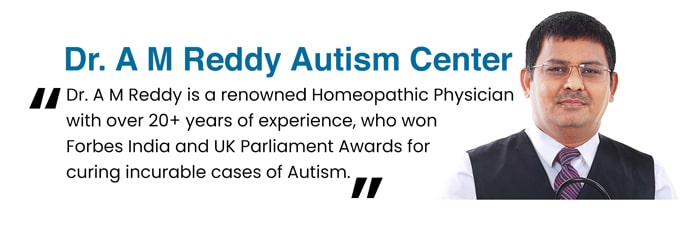Three typical symptoms of Attention-Deficit Hyperactivity Disorder (ADHD) that you can see in today’s youngsters are hyperactivity, distractibility, and impulsiveness. This is distinct in contrast to the children of three decades ago. They were branded as “normal” even when they let off some steam or kicked up some dirt. Read the space attentively to learn more about ADHD symptoms in adults.
Overview
Adult’s Attention Deficit Hyperactivity Disorder (ADHD) is a mental disorder characterized by several chronic issues, including trouble paying attention, hyperactivity, and impulsive conduct. Adult ADHD can cause interpersonal problems, poor work or school performance, low self-esteem, and other issues.
Although it is referred to as adult ADHD, symptoms begin in infancy and continue throughout the age. ADHD is not often identified or diagnosed until a person is an adult. Adult ADHD symptoms may be less obvious than ADHD symptoms in adults. Youngsters may have reduced hyperactivity, but they may continue to suffer from suicidal thoughts, restlessness, and difficulties paying attention.
Symptoms
While some persons with ADHD experience fewer symptoms as they age, several adults experience significant symptoms that interfere with everyday functioning. Adults with ADHD may experience trouble paying focus, suicidal thoughts, and restlessness. The severity of the signs may be mild to severe.
Many persons with ADHD aren’t aware of their condition; they only know that regular tasks might be difficult. Adults with ADHD may struggle to focus and prioritize, resulting in missed deadlines and missed meetings or social arrangements. The inability to manage emotions can range from frustration when waiting in line or driving in traffic to mood swings and angry outbursts.
Among the signs of adult ADHD are:
- Suicidal tendencies
- Disorganization and difficulty prioritizing
- Poor time management skills
- Issues with focusing on a task
- Difficulties with multitasking
- Excessive activity or agitation
- Inadequate planning
- Low tolerance for frustration
- Mood fluctuations that occur often
- Follow-through and task completion issues
- Irritable temperament
- Having difficulty dealing with stress

What is the difference between normal and ADHD behavior?
Almost everyone gets ADHD-like symptoms at some point in their lives. If your troubles are new or have occurred only occasionally in the past, you most likely do not have it. ADHD is only diagnosed when symptoms are strong enough to create persistent issues in more than one area of your life. These bothersome and chronic symptoms can be traced back to childhood.
ADHD diagnosis can be challenging since certain ADHD symptoms in adults are similar to those produced by other diseases such as anxiety or mood disorders. In addition, many individuals with ADHD have at least one other mental health disorder, such as sadness or anxiety.
Many families seek alternative treatment approaches to treat ADHD symptoms in adults, such as those found in natural foods stores or online. Homeopathic medications are widely accessible, and the majority of them may be obtained without a doctor’s prescription.
Many feel these preparations sound, and can they withstand researchers’ examination? Some investigations have been on homeopathic medicines as a possible treatment for ADHD; however, the data is unclear.
Other Common Features
Other characteristics shared by persons who have attention deficit hyperactivity disorder (ADHD) include:
- Changing jobs often with few personal or professional achievements
- Divorce is one of the most common similarities of marital problems
Causes
While the specific origin of ADHD symptoms in adults is unknown, research efforts are ongoing. The following factors may have a role in the development of ADHD:
Genetics: ADHD may run in families, and research suggests genetics may play a role
Environmental factors: Its like childhood lead exposure, may further increase the risk
Issues that arise throughout development: Problems with the central nervous system throughout critical stages of development might have a role

Risk elements
ADHD risk may rise if:
- You have a blood family with ADHD or another mental health issue, such as a parent or sibling
- Your mother/father smoked, consumed alcohol, or took pills during her pregnancy
- You were exposed to environmental hazards as a youngster, such as lead, mostly in paint and pipes in older houses
- You were born too soon
Complications
You may find it challenging to live your life if you have ADHD. ADHD has been associated with the following:
- Inadequate academic or professional performance
- Unemployment
- Financial issues
- The trouble with the law misuse of alcohol and other substances
- Frequent automobile accidents or other types of accidents
- Unstable relationships
- Health problems, both physical and mental
- A low self
- Attempts on suicide
Conditions that coexist
Although ADHD does not cause other psychological or developmental difficulties, it is common for other diseases to coexist with ADHD, making treatment more difficult. These are some examples:
- Mood disturbances: Many individuals with ADHD also have depression, bipolar disorders, or other types of mood problems. While ADHD doesn’t always cause mood issues, a pattern of failures and frustrations caused by ADHD might make worse
- Anxiety problems: Anxiety problems are rather common in people with ADHD. Anxiety disorders can result in excessive worry, uneasiness, and other symptoms. Anxiety can be worse by the difficulties and disappointments associated with ADHD
- Other psychological issues: Adults with ADHD are more likely to develop additional mental problems such as personality disorders, intermittent explosive disorder, and harmful substances intake and abuse disorders
- Learning difficulties: Adults with ADHD may perform poorly on academic tests despite their age, IQ, and education. Learning deficiencies can cause difficulties with understanding and communication
Parental Self-Help
- Increase your child’s self-esteem
- Provide a variety of stimulating learning activities, such as reading, drawing, and painting, for your child
- Provide positive role models or hands-on activities
- Teach your child organizational skills and the value of personal effort
- Teach your kid to focus on yoga or simple breathing exercises for better health
- Hold family meetings; even better, maintain a good picture of your child
When basic efforts fail, seek expert homeopathy treatment; maintain frequent contact with your doctor
Can Homeopathy Medicines Aid in the Treatment of ADHD Symptoms in Adults?
Yes, homeopathy can aid in the treatment of ADHD symptoms in adults too.
Since 2005, our customized Homeopathy treatment for ADHD, designed by the acclaimed Indian Homeopathy expert Dr. A M Reddy, has benefited over 7850 youngsters.
- Compared to all other global Homeopathy clinics combined, our specialized ADHD clinics have healed the greatest number of children with ADHD symptoms
- Homeopathy is a proven treatment for ADHD, using natural Homeopathy treatments tailored to your child’s specific needs for a speedier recovery
- We usually observe a cure in 3-24 months
The simplest and safest way to permanently cure ADHD. Simply try our treatment for three months to discover how much of a difference it may make in your child’s symptoms
If you are worried about your kid’s abnormal behavior, We have assured satisfaction, for more details call us: For India use: +91 7674004000, +91 7337440845 , For USA use: +1347 726 9005 or WhatsApp us (if you belong to any country).
We provide Online Consultation also. Book Prior Appointment for Weekend Consultation.
For More Info, Visit Our Website: Dr. A M Reddy Autism Centre
Note: Online Consultation Available via Zoom/ WhatsApp/ Video Call! 15 days Prior Appointment is Available.

